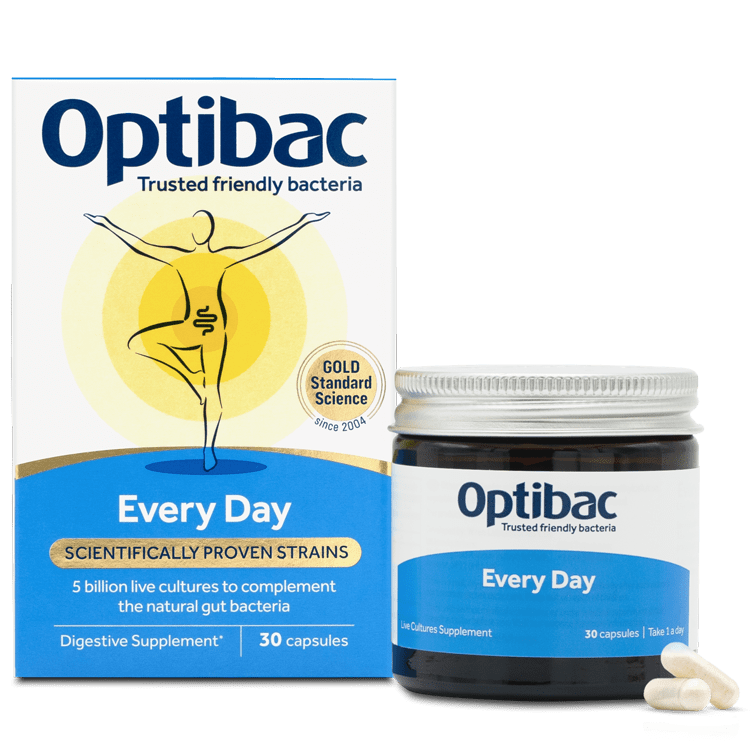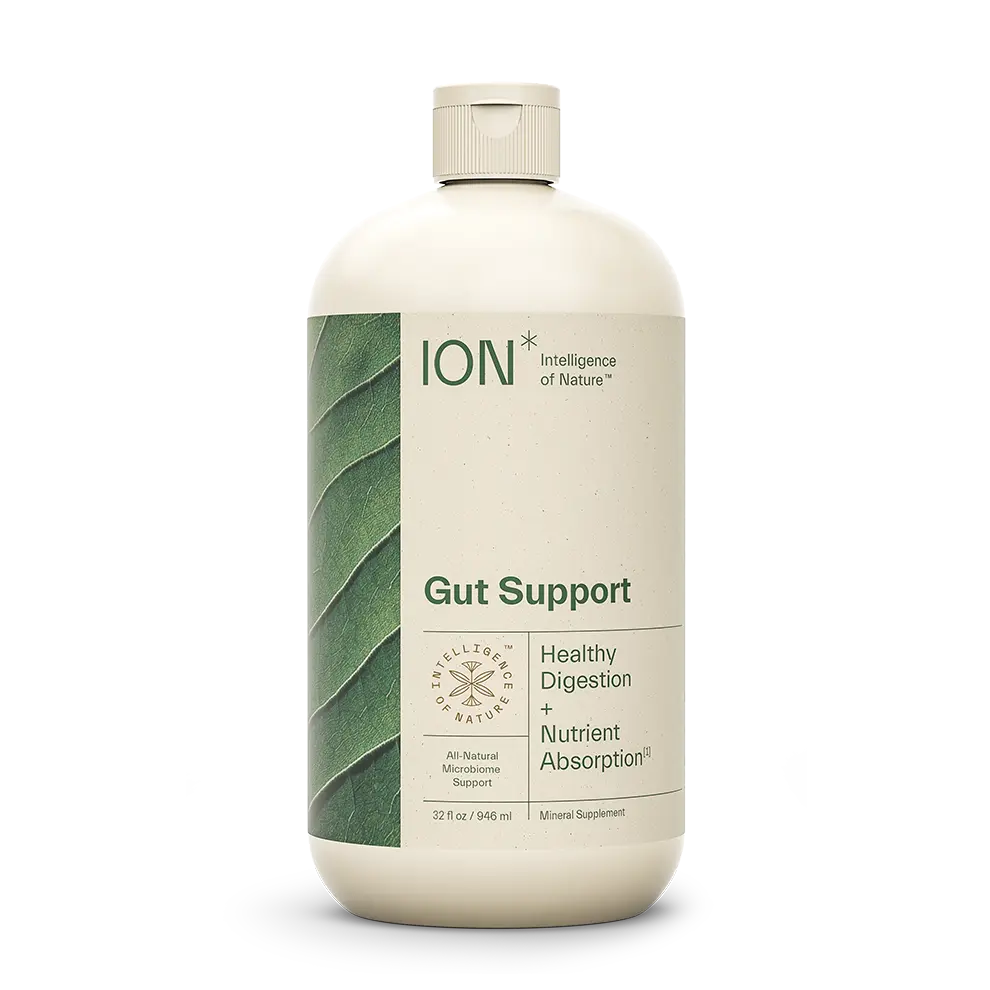Everything You Need to Know About a supplement for gut health
Wiki Article
Checking out the Causes and Symptoms of Digestive Tract Issues and the Duty of Digestive Tract Health Supplement
Digestive tract health is an important element of general wellness. Poor nutritional choices, stress, and discrepancies in gut microorganisms can cause different digestion issues. Signs and symptoms such as bloating, diarrhea, and stomach discomfort frequently indicate deeper health and wellness worries. Comprehending these causes and the prospective role of intestine wellness supplements might offer crucial insights. What strategies can be employed to recover equilibrium and improve digestive tract feature? The answers might exist in the next actions.Recognizing the Digestive Tract Microbiome
The intestine microbiome, an intricate ecosystem of trillions of bacteria living in the digestion system, plays a crucial function in total wellness. This diverse neighborhood contains microorganisms, viruses, fungi, and other microorganisms that engage symbiotically with the human host. They assist in the food digestion of food, the synthesis of vitamins, and the policy of metabolic rate. Additionally, the intestine microbiome significantly influences the body immune system, aiding to safeguard against pathogens and keep a balanced inflammatory response. Study shows that a healthy microbiome is important for psychological well-being, with gut-brain communications influencing mood and behavior. Factors such as diet plan, lifestyle, and environmental direct exposures can shape the composition of the microbiome, emphasizing the relevance of preserving a balanced diet plan rich in fiber and probiotics. Comprehending this intricate environment supplies insights into how digestive tract health and wellness can affect overall physical and psychological well-being, highlighting its value in health and wellness management.Usual Root Causes Of Digestion Issues
Numerous aspects can contribute to digestive system problems, certain common causes regularly interfere with digestive tract health. Poor nutritional options, such as high sugar and refined food consumption, can result in inequalities in digestive tract germs. Additionally, poor fiber consumption can hinder food digestion and promote constipation. Stress is one more substantial factor, as it can alter intestine feature and exacerbate present problems. Absence of physical task may slow down the digestive system, causing pain and bloating.Infections, consisting of microbial, viral, or parasitic agents, can additionally activate intestinal disruptions. Food intolerances and allergic reactions, especially to gluten and lactose, frequently lead to digestive system discomfort. The abuse of anti-biotics can interrupt the natural microbiome, leading to additional problems. Identifying these usual reasons is important for individuals looking for to boost their gut health and wellness and general health.
Acknowledging Symptoms of Intestine Problems
Determining signs and symptoms of intestine issues can be crucial for timely treatment and boosted health and wellness. People experiencing gastrointestinal discomfort must know a number of typical signs that suggest underlying problems. Symptoms might include bloating, gas, diarrhea, bowel irregularity, and stomach discomfort. These indications can differ in intensity and regularity, commonly reflecting the seriousness of the intestine problem. In addition, some people might notice unplanned weight reduction, exhaustion, or changes in appetite, which could signal a more significant condition. Skin problems, such as breakouts or acne, may additionally develop, linking gut wellness to general health. Significantly, consistent symptoms need to not be ignored, as early acknowledgment can help with effective treatment and stop more complications. A detailed understanding of one's physical signals is important, enabling people to seek medical recommendations when needed and possibly bring about far better health outcomes through ideal interventions.The Influence of Diet on Gut Wellness
Diet regimen plays an essential role in determining digestive tract health and wellness, affecting both microbial equilibrium and digestion efficiency. Nutrient-rich foods can promote a healthy intestine environment, while processed foods may cause discrepancies and digestion concerns. Recognizing these dietary effects is necessary for keeping overall gut wellness.Nutrient-Rich Foods
While numerous variables influence gut health, the role of nutrient-rich foods can not be overemphasized. A diet plan bountiful in whole foods, such as fruits, vegetables, entire grains, lean proteins, and healthy and balanced fats, contributes greatly to keeping a balanced digestive tract microbiome. These foods supply crucial vitamins, minerals, and anti-oxidants that sustain gastrointestinal health and minimize inflammation. Fiber-rich options, particularly, advertise routine bowel motions and nourish valuable intestine bacteria, improving total digestive tract function. Probiotic-rich foods like yogurt and fermented veggies further sustain intestine vegetations, aiding digestion. Integrating a variety of nutrient-dense foods not just promotes a healthy digestive tract atmosphere but likewise enhances the body immune system, adding to overall wellness. Focusing on these foods can cause enhanced digestive tract health and avoid possible concerns.Processed Food Impacts
The intake of refined foods can significantly weaken gut wellness, neutralizing the benefits of nutrient-rich options. These foods are typically high in sugars, ingredients, and preservatives, which can interfere with the balance of intestine microbiota. A diet regimen abundant in refined products has a tendency to do not have crucial nutrients, leading to shortages that endanger digestive function. Too much sugar and harmful fats can promote inflammation and add to conditions like cranky bowel syndrome (IBS) and leaky gut disorder. This discrepancy might lead to symptoms such as pain, gas, and bloating. In addition, the reduced fiber web content in refined foods diminishes digestive health by limiting the development of beneficial microorganisms. Ultimately, a change in the direction of whole, unrefined foods is essential for maintaining perfect intestine function and overall well-beingExactly How Anxiety Impacts Digestion
Stress and anxiety substantially impacts digestion by setting off a cascade of physical feedbacks that can interfere with regular stomach function. When a private experiences stress, the body enters a fight-or-flight mode, releasing hormones such as cortisol and adrenaline. These hormonal agents can reduce down digestion by lowering blood flow to the digestion organs, causing signs and symptoms such as irregular bowel movements, diarrhea, or bloating.Stress can change the intestine microbiome, adversely influencing the equilibrium of beneficial microorganisms. This inequality can aggravate existing gut issues or develop new ones. In addition, tension usually causes unhealthy eating habits, such as overeating or consuming refined foods, which can further endanger digestive system health and wellness.
Emotional elements, such as anxiety and clinical depression, can also add to intestinal pain, creating a responses loophole that bolsters digestive tract concerns. Comprehending the detailed connection between stress and anxiety and digestion is vital for maintaining overall intestine health and wellness.
The Function of Gut Health And Wellness Supplements
Intestine health and wellness supplements play a significant role in enhancing gastrointestinal function and general wellness. Secret components, such as prebiotics and probiotics, are important for maintaining a balanced digestive tract microbiome. Recognizing the benefits and parts of these supplements can assist people in making notified choices for their digestion wellness.Benefits of Intestine Supplements
A flourishing best gut health supplement digestive system is essential for total health, and intestine health supplements can play a considerable duty in attaining this balance. These supplements frequently have probiotics, prebiotics, and various nutrients that support digestive system function and promote a healthy digestive tract microbiome. By improving the development of helpful microorganisms, they can improve food digestion, lower bloating, and relieve pain connected with stomach concerns. Additionally, digestive tract supplements may enhance the intestine obstacle, possibly reducing the risk of food level of sensitivities and inflammatory conditions. Routine usage can also add to enhanced nutrient absorption, power degrees, and even mental health, as digestive tract health and wellness is carefully connected to mood regulation. Eventually, including gut health and wellness supplements can be a tactical strategy to preserving digestive consistency and total health.
Trick Ingredients to Take Into Consideration
When selecting intestine health and wellness supplements, comprehending the vital active ingredients is important for optimizing their advantages. Probiotics, particularly Lactobacillus and Bifidobacterium stress, are vital as they help recover a balanced intestine microbiome. Prebiotics, such as inulin and fructooligosaccharides, function as food for these helpful germs, promoting their development. Digestion enzymes, including amylase and protease, aid in breaking down food, enhancing nutrition absorption. Additionally, fiber sources like psyllium husk support routine defecation and general digestive tract health and wellness. Other helpful ingredients may include L-glutamine, which assists in repairing digestive tract lining, and zinc, recognized for its immune-supporting residential properties. Picking supplements with these essential parts can substantially boost gut health and wellness and general wellness.Tips for Maintaining a Healthy And Balanced Gut
Keeping a healthy gut is essential for overall wellness, as it plays a crucial role in digestion, immunity, and nutrient absorption. To support intestine wellness, people must prioritize a well balanced diet abundant in fiber from fruits, vegetables, and whole grains. These foods promote valuable microorganisms in the gut. In addition, integrating fermented foods such as sauerkraut, kefir, and yogurt can enhance digestive tract plants variety. Staying moisturized is additionally critical, as adequate water intake help food digestion and nutrient transport.Regular exercise adds to digestive tract wellness by advertising reliable digestion and minimizing tension, which can adversely affect intestine function. Furthermore, taking care of stress and anxiety through mindfulness methods like meditation or yoga can also support intestine wellness. Staying clear of excessive usage of prescription antibiotics and restricting processed foods, sugars, and undesirable fats can foster a well balanced gut setting. By embracing these techniques, people can significantly improve their gut health and overall wellness.
Often Asked Questions

Can Gut Health Effect Mental Wellness and State Of Mind Security?
Study suggests a substantial link in between digestive tract health and psychological well-being. The gut microbiome can affect mood security and psychological health and wellness, suggesting that keeping a healthy and balanced digestive tract might add favorably to emotional resilience and cognitive function.Are There Certain Foods to Stay Clear Of for Better Intestine Health?
Particular foods can adversely influence intestine health, including processed sugars, sweetening agents, and high-fat dairy items. Minimizing these items may enhance digestive system function and advertise a much healthier gut microbiome, causing on the whole better wellness.The length of time Does It Consider Intestine Health Supplements to Program Consequences?
The duration for intestine wellness supplements to demonstrate results varies amongst people. Normally, obvious changes may occur within a couple of weeks, yet some people might need several months for perfect outcomes, relying on their one-of-a-kind health problems.Can Kid Experience Intestine Concerns Similar to Grownups?

Youngsters can experience digestive tract issues similar to adults, including discomfort, bloating, and uneven bowel motions (supplement for bloating). Elements such as diet, stress and anxiety, and infections might add to these troubles, making awareness and administration essential for their health and wellness
What Are the Long-Term Results of Neglected Intestine Troubles?

Fiber-rich options, particularly, advertise regular bowel movements and nourish advantageous digestive tract bacteria, enhancing general gut function. A prospering digestion system is important for general health, and gut wellness supplements can play a considerable function in attaining this balance. Furthermore, gut supplements may strengthen the gut barrier, potentially minimizing the danger of food sensitivities and inflammatory conditions (supplement for bloating). Normal physical activity contributes to digestive tract health by promoting effective food digestion and minimizing stress, which can detrimentally affect gut function. Certain foods can negatively influence digestive tract health and wellness, including processed sugars, fabricated sugar, and high-fat dairy items
Report this wiki page